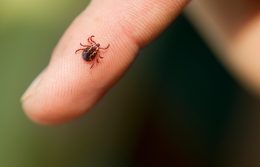Staying Healthy During Cold and Flu Season
The good news is there are many ways to prevent illness from striking you and your loved ones.
How to Access the content
Welcome! If you receive Texas Heritage for Living magazine, sign in here. Otherwise, we invite you to click here to enjoy the content as our guest.
RELATED ARTICLES



